Search
Search Results
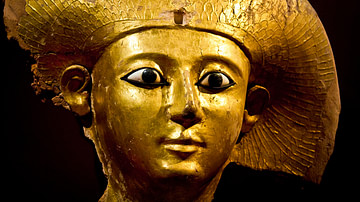
Definition
Ancient Egyptian Culture
Ancient Egyptian culture flourished between c. 6000 BCE with the rise of technology (as evidenced in the glasswork of faience) and 30 BCE with the death of Cleopatra VII, the last Ptolemaic ruler of Egypt. It is famous today for the great...
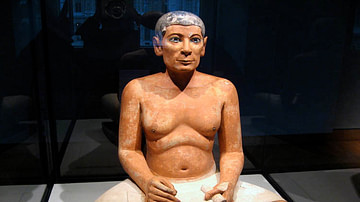
Definition
Ancient Egyptian Government
The government of ancient Egypt was a theocratic monarchy as the king ruled by a mandate from the gods, initially was seen as an intermediary between human beings and the divine, and was supposed to represent the gods' will through the laws...
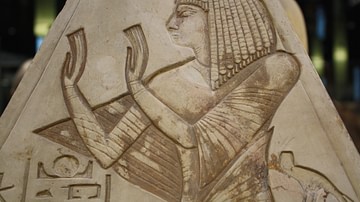
Definition
Ancient Egyptian Religion
Egyptian religion was a combination of beliefs and practices which, in the modern day, would include Egyptian mythology, science, medicine, psychiatry, magic, spiritualism, herbology, as well as the modern understanding of 'religion' as belief...
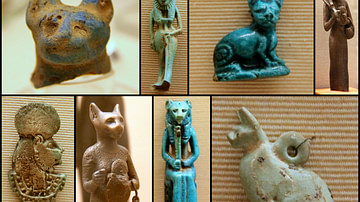
Article
Cats in the Ancient World
Cats and humans have shared in each other's lives for thousands of years and, even though they have not always been regarded as highly as in the present, have played an important role in a number of cultures. Always enigmatic, the cat has...
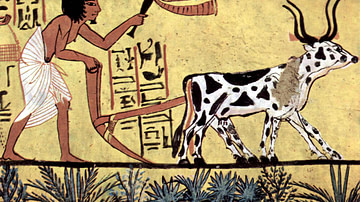
Article
Daily Life in Ancient Egypt
The popular view of life in ancient Egypt is often that it was a death-obsessed culture in which powerful pharaohs forced the people to labor at constructing pyramids and temples and, at an unspecified time, enslaved the Hebrews for this...
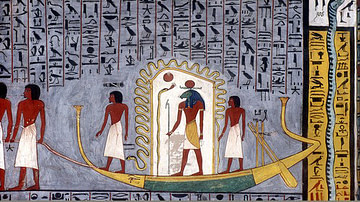
Article
The Pyramid Texts: Guide to the Afterlife
The Pyramid Texts are the oldest religious writings in the world and make up the principal funerary literature of ancient Egypt. They comprise the texts which were inscribed on the sarcophogi and walls of the pyramids at Saqqara in the 5th...
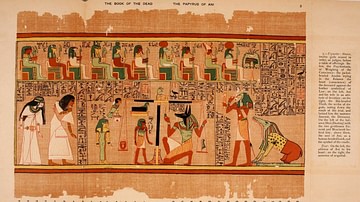
Definition
The Negative Confession
The Negative Confession (also known as The Declaration of Innocence) is a list of 42 sins which the soul of the deceased can honestly say it has never committed when it stands in judgment in the afterlife. The soul would recite these in the...
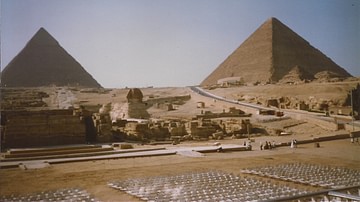
Article
Ten Ancient Egypt Facts You Need to Know
Ancient Egypt is defined as the civilization which flourished in North Africa between c. 6000-30 BCE – from the Predynastic Period in Egypt (c. 6000 - c. 3150 BCE) through the Ptolemaic Dynasty (323-30 BCE) before Egypt became a province...
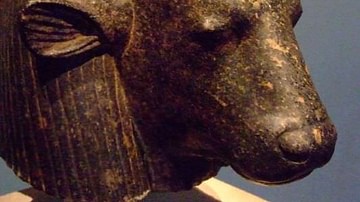
Definition
Hathor
Hathor is an ancient Egyptian goddess associated, later, with Isis and, earlier, with Sekhmet but eventually was considered the primeval goddess from whom all others were derived. She is usually depicted as a woman with the head of a cow...
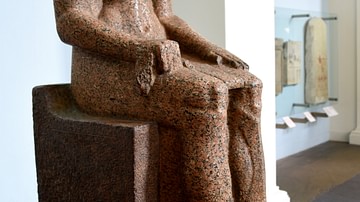
Definition
Second Intermediate Period of Egypt
The Second Intermediate Period (c. 1782 - c.1570 BCE) is the era following the Middle Kingdom of Egypt (2040-1782 BCE) and preceding the New Kingdom (1570-1069 BCE). As with all historical designations of the eras of Egyptian history, the...